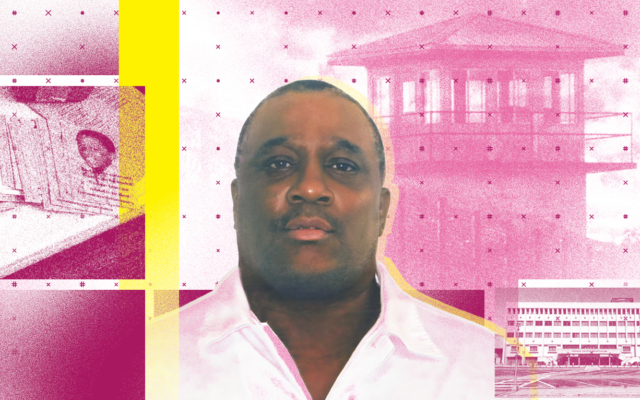रक्की मायर्सलाई चिन्नेहरूले उनलाई कोमल र दयालु भनेर वर्णन गरेका छन्। उनलाई आफ्ना भाइबहिनी, छोराछोरी र नातिनातिनाहरूको माया लाग्छ र उनीहरू उनको आदर-सत्कार गर्छन्। उनले चर्चको गाना बजाउने समूहमा ड्रम बजाए। ११ वर्षको उमेरमा रक्कीमा बौद्धिक अपाङ्गता भएको पत्ता लागेको थियो। उनलाई पढ्न गाह्रो छ र मिति वा समयका बारेमा राम्ररी बुझ्न सक्दैनन्। सन् 1991 मा एक रात अलाबामाको डेकाटुर शहरमा उनको जीवन सधैंको लागि परिवर्तन भयो।
अस्वेत बाहुल्य इलाकामा एक वृद्ध स्वेत महिलाको हत्या गरिएको थियो। काला जातिका रक्की सडकको पारी बस्थे। सडकमा फालेको अवस्थामा आफूले फेला पारेको भनी रक्कीले बताउने गरेको पीडितको भिडियो क्यासेट रेकर्डर बाहेक हत्याको घटनास्थलसँग जोड्ने बिना कुनै प्रमाणका बाबजुद पनि रक्कीलाई अपराधमा दोषी ठहर गरियो।
बकपत्रहरू विरोधाभाष र प्रहरीको दबाबसम्बन्धी आरोपहरूले धमिलिएको थियो। एक मुख्य साक्षीले पछि उनले झूट बोलेको बताएका थिए। भारी बहुमतको स्वेत निर्णायक मण्डली (जुरी)ले उनलाई दोषी ठहर गर्दै आजीवन कारावास सजायको सिफारिस गरे। तर न्यायाधीशले रक्कीलाई मृत्युदण्डको सजाय सुनाए। अहिले अलाबामामा यसरी निर्णायक मण्डलीको निर्णय खारेज गर्नु गैरकानुनी छ।
अमेरिकी सर्वोच्च अदालतले बौद्धिक अपाङ्गता भएका प्रतिवादीहरूले “गलत रूपमा मृत्युदण्डको विशेष जोखिम सामना गर्ने” निर्णय गरेको छ। यो रक्कीको लागि पक्कै पनि सत्य हो। अप्रभावकरी कानुनी प्रतिनिधित्वको बोझ र आरोप ठहर भइसेकपछिका वकिलद्वारा त्यागिएका रक्कीले पुनरावेदनको समयसीमा कटाएका थिए। उनलाई कुनै पनि समय मृत्युदण्ड दिइनसक्छ र उनको एकमात्र आशा अलाबामाका गभर्नरले उनलाई दिन सक्ने क्षमादान रहेको छ।
Help Stop Rocky Myers’s execution
रक्की मायर्सलाई क्षमादान दिन अलाबामाका गभर्नरलाई अनुरोध गरौं।
Three decades on death row despite flawed proceedings
Rocky Myers is described by those who know him as gentle and kind. He loves his siblings , children , and grandchildren , and they adore him. He played drums in his church choir. At age 11, Rocky was diagnosed with an intellectual disability. He finds reading hard and can’t keep dates or times straight in his head. One night in 1991, in the town of Decatur, Alabama, his life changed forever.
An elderly white woman was murdered in a predominantly Black neighbourhood. Rocky, who is Black, lived across the street. Despite no evidence linking him to the scene of the murder, except for a video cassette recorder belonging to the victim which Rocky maintains he found abandoned in the street, Rocky was convicted of the crime.
Testimonies were tainted by inconsistencies and allegations of police pressure – one key witness later stated that he had lied. An overwhelmingly white jury found him guilty but recommended a sentence of life imprisonment. The judge instead sentenced Rocky to death. Overruling a jury in this way is now illegal in Alabama.
The US Supreme Court ruled that defendants with intellectual disabilities “face a special risk of wrongful execution”. This is certainly true for Rocky. Burdened with ineffective legal representation and abandoned by his post-conviction lawyer , Rocky missed deadlines for appeal. His execution could be scheduled at any time, and his only hope is for the governor of Alabama to grant him clemency.
Tell the governor of Alabama to grant clemency to Rocky Myers.


